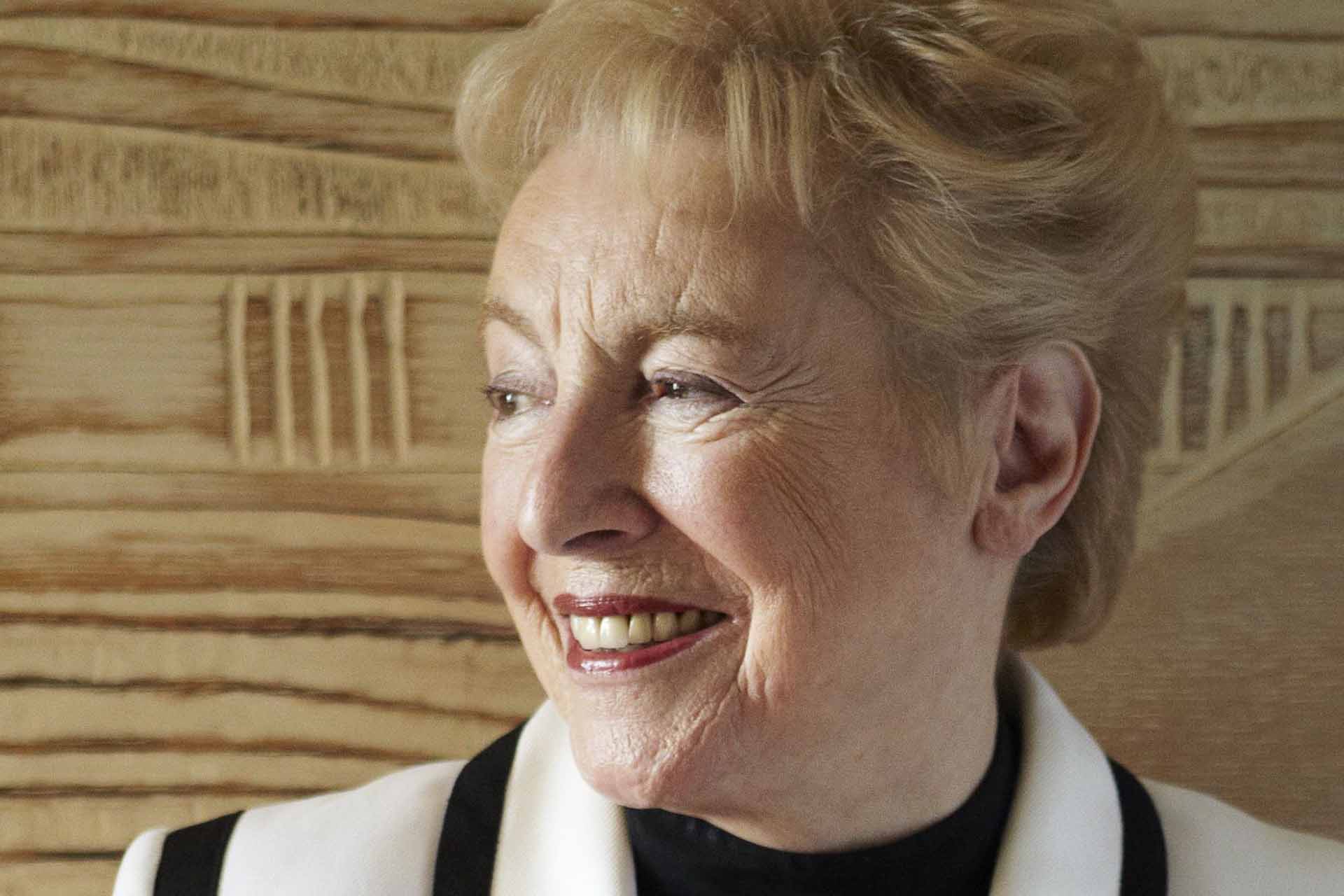
In September 2015, Dame Stephanie Shirley launched the Women for Change network. Her keynote speech was received incredibly well by those who attended and encouraged many to join the movement to learn how to use their resources, skills and time to drive meaningful social change. Today, she shares her thoughts on the importance of active philanthropy and the role it has played in her life.
Britain is my adopted country which I love with a passion that perhaps only someone who has lost their human rights can feel. I learnt a great deal in my early life as an unaccompanied child refugee. At five years old, my mother sent me out of Nazi Europe into the arms of English strangers, thinking never to see me again. This was on a Kindertransport train, part of a movement which saved 10,000 Jewish children.
I coped with the change and also learnt to deal with my survivor guilt – the irrational depression at having survived when so many people died.
In the earning phase of my life, in 1962 I founded a technology company for women with computer skills – a software house which eventually became a public company with over 8,500 staff. It began as a company of women; a company for women. As a pathfinder in the professionalism of women – especially in the hi-tech industries – for years I was the first woman this, the only woman that. And more than a token woman.
In those days no one expected much from women in business; I couldn’t accept that and challenged the conventions of the time, even adopting the name Steve in business letters to get through the door before anyone realised that “he” was a “she”.
I wanted opportunities for women. So recruited professionally qualified women who had left the computer industry to marry or have children, and structured them into a homeworking organisation. Britain’s employment equality legislation in 1975 made our pro-female policies illegal so, as an example of unintended consequences, my woman’s company had to let the men in!
From IT entrepreneur to ardent philanthropist, my husband and I live modestly in retirement in the returning phase of my life. Giving work opportunities to women was also a way of returning.
We are all motivated by pleasure. Everyone knows if it’s children, or the elderly or the disabled or animals or environmental issues that interest us. Surprisingly, major women donors support international projects more than men do. I don’t think my giving is any different because I’m a woman. Though I do care about issues and am ‘care-ful’ about them. Giving is what I do. A study by New Philanthropy Capital showed that their female clients liked to support refugees, mental health and domestic violence… all less than popular.
After much soul searching, The Shirley Foundation decided to concentrate on facilitating pioneering projects (never more of the same, no matter how worthy) with strategic impact. What do I mean by that? Projects that if successful make a real difference in the sea of need. In the two areas I know and care about: IT (my professional discipline) and autism (my late son’s disorder).
Giving is a social and cultural activity not merely a financial transaction. Sure, money can be given as a compassionate act of detachment. In giving to make a difference, I try to make it a committed act of love.
There have been donations, large and small, totalling £67m to date, each one accompanied by involvement, and the commitment of my time and skills. It is demeaning to “just” give money – and anyway one wants the fun, the adrenalin buzz, of commitment. If you don’t commit, you’re just taking up space in the world.
I meet more interesting people, travel purposefully to more interesting places, and feel more fulfilled giving money away than ever in the years spent making it. And the more I give away, the richer my life becomes.


